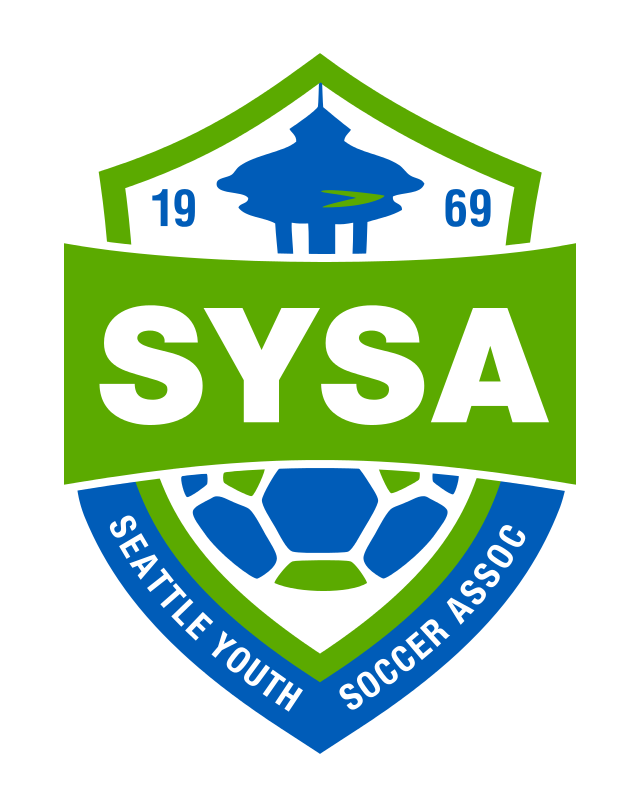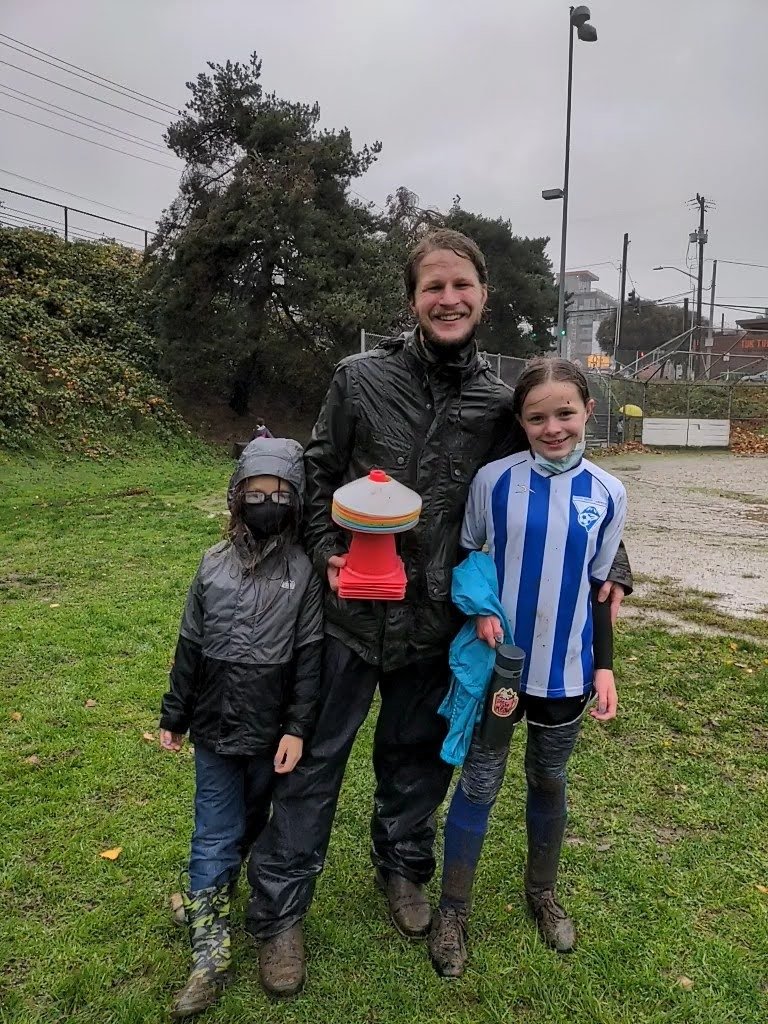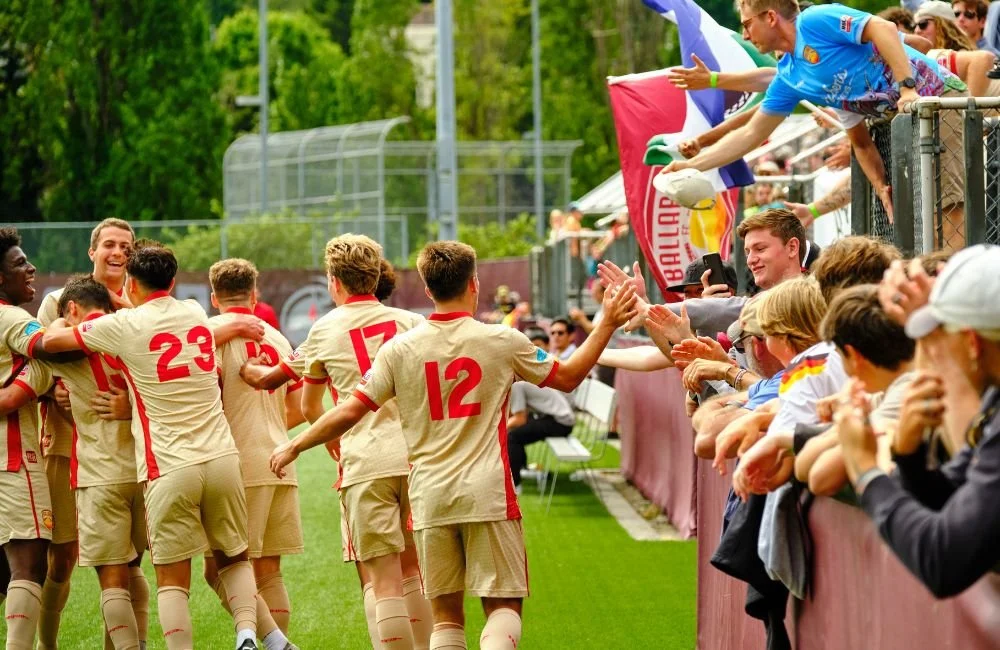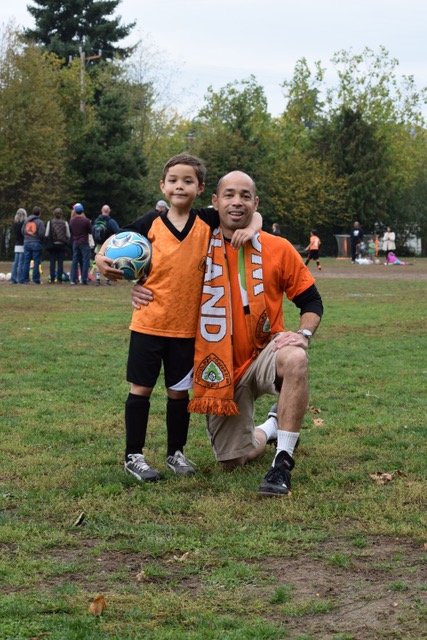For many, coaching youth sports is just a weekend commitment. But for Tom Powers, it has been a life-changing experience spanning more than a decade. His story is not just about soccer—it’s about mentorship, growth, and community.
From Teacher to Coach: A Journey Begins
Tom's journey into coaching wasn't planned. A high school French teacher by trade, he first dipped his toes into coaching while working at boarding schools in New England, leading cross-country and track teams. Soccer wasn’t initially in his wheelhouse—he hadn’t played growing up. But when he moved to Seattle 30 years ago, he joined a recreational soccer team to meet people.
Fast forward to when his son turned six, and Tom & his wife faced an unexpected hurdle: there were far more registered players than coaches. His wife made a few calls and found a solution—Tom would be the coach. That first season, coaching wasn’t about tactics or strategy; it was about teaching six-year-olds to be kind, to work together, and to simply enjoy the game. What started as a short-term fix evolved into a commitment spanning over a decade that continues into the present.
The Heart of Coaching: Relationships Over Wins
Despite coaching being a major time commitment, Tom has never wavered. When asked why he returns season after season, he gave an emotional answer. “You come back because the kids count on you,” he shared. “You see their growth, their progress, and you hear about the impact you’ve made from both the kids and their parents.”
Tom’s philosophy is simple: It’s not about winning; it’s about playing with integrity. He frequently reminds his team, “I would rather lose well than win poorly.” To him, success is about sportsmanship, teamwork, and personal growth. He’s created a culture where post-game recognitions focus on effort and encouragement rather than just results. This culture has evolved outside of the game and into the players' school and home lives.
Coaching Challenges: Setting Expectations
While working with kids has been rewarding, managing parents in the early days was one of the bigger challenges. Tom believes that all parents want the best for their kids, which makes them strong advocates and passionate fans. That intense parental involvement, however, could show up in unproductive ways such as questioning playing time and coaching from the sidelines.
To address parental behaviors and keep the game fun for kids Tom developed a “How to Cheer” cheat sheet, helping parents reframe their approach in a way that supports their child’s experience.
He also established a clear rubric for playing time: effort and attendance mattered more than raw talent. This helped create a fair and transparent team culture, one where players and parents alike understood the values of commitment and hard work.
A Mental Health Approach to Coaching
As a mental health counselor, Tom integrates his professional background into his coaching philosophy. He believes in resilience, emotional intelligence, and positive reinforcement. Through tough losses, he encourages his team to find successes beyond the scoreboard. “It’s easy to find victories when you win,” he says, “but we focus on recognizing our strengths no matter the outcome.”
One of his proudest moments came not from winning a championship, but from watching his players support and show up for one another.
Coaching His Own Son Formed A Unique Bond
Coaching his son has been one of the most rewarding aspects of Tom’s journey. “I really know my son,” he says. “It’s given us a connection that many parents and teenagers don’t get to have.” As his son has grown, their relationship has evolved from player-coach to mutual respect and collaboration. Now, they even play on a recreational team together—equals on the field, sharing their love for the game.
Winning Coach of the Year: More Than an Award
When Tom won “Coach of the Year,” his initial reaction was modest. But after reading the nomination packet—filled with testimonials from parents and players—he realized the depth of his impact. One player shared, “If it wasn’t for Tom, I wouldn’t even be playing soccer. I’m not into sports, but because of this team, I stayed.”
Another parent recalled how, during the pandemic, Tom created a running club just to keep kids active and engaged. The recognition wasn’t just for his coaching, but for years of dedication to fostering a supportive community.
Looking Ahead: The Final Season and a Lasting Legacy
With many of his players becoming high school seniors, this will be the last season for Tom’s team, the Woodland Cheetahs. But his commitment remains unwavering: “I made a promise to coach every player through their senior year.” Though the team will disband, the relationships and lessons will last a lifetime. Some of his players may continue to play in college, some may move on—but all of them will carry the values they learned from their time with Coach Tom.
Advice for Future Coaches: “Do It.”
Tom’s advice for aspiring coaches is simple: “Do it. Kids need you. You can make a difference.” He encourages coaches to define their mission beyond wins and losses. His personal coaching philosophy? To develop caring, resilient kids with integrity.
“Welcome to the best part of my week,” he tells his players, even on the toughest days. And for every child who has played for Tom Powers, they know that sentiment is genuine.


































